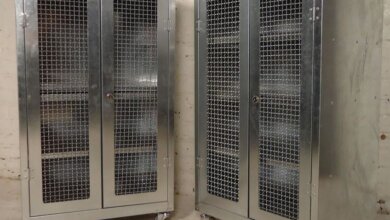Top Private Label Products to Sell in 2025 for Maximum Profit
Private label products are dominating the eCommerce and retail space in 2025. With higher profit margins, brand control, and scalable opportunities, entrepreneurs are turning to private labeling as their preferred business model. Whether you’re just starting or looking to expand your product line, this guide walks you through the best private label products, how to choose them, and how to succeed in this booming industry.
Table of Contents
What Are Private Label Products?
Private label products are goods manufactured by a third party but sold under your own brand name. You don’t own the factory — you own the brand. This allows for flexibility in pricing, marketing, and product design.
Example: You find a skincare manufacturer, apply your branding to their serum, and sell it as your own product.
Why Sell Private Label Products?
Selling private label products offers numerous advantages for eCommerce entrepreneurs and small businesses:
Benefits of Private Labeling
-
Higher profit margins
-
Full control over branding and pricing
-
Low barrier to entry
-
Opportunities for product customization
-
Customer loyalty and brand equity
With private labeling, you don’t just sell products — you build a brand.
Top Private Label Product Categories in 2025
Choosing the right niche is half the battle. Here are trending categories in the private label space for 2025:
-
Health & Wellness
-
Skincare & Beauty
-
Fitness Equipment
-
Pet Supplies
-
Eco-friendly Home Goods
-
Tech Accessories
-
Organic Food & Supplements
Each of these categories has low competition products and high consumer demand.
Best-Selling Private Label Products
Let’s break down hot-selling items in 2025:
Skincare & Beauty
-
Vitamin C serums
-
Natural deodorants
-
Anti-aging creams
-
Beard oils
Health & Wellness
-
Herbal supplements
-
Sleep aids
-
Immune boosters
-
Wellness teas
Eco-Friendly Products
-
Bamboo toothbrushes
-
Reusable straws
-
Compostable kitchen bags
Fitness Products
-
Resistance bands
-
Foam rollers
-
Protein shakers
-
Smart water bottles
Tech Accessories
-
Wireless chargers
-
Bluetooth headphones
-
Phone stands
How to Choose the Right Product
Not all private label products are profitable. Use these criteria:
-
Low competition, high demand
-
Not dominated by big brands
-
Lightweight and easy to ship
-
Repeat purchase potential
-
Room for branding
Pro Tip: Use tools like Jungle Scout, Helium 10, or Google Trends to validate product ideas.
Where to Source Private Label Products
Here are the best sourcing options:
Alibaba
A go-to platform for finding suppliers in China. Filter by trade assurance, verified suppliers, and sample availability.
GlobalSources & DHGate
Great for niche products and smaller MOQs (minimum order quantities).
Domestic Manufacturers
If you’re focused on “Made in USA” branding or faster delivery times, search for local contract manufacturers.
How to Brand Your Private Label
Branding sets your product apart. Here’s how to create a killer brand:
Name and Logo
-
Use tools like Looka, Canva, or Fiverr to create a memorable name and logo.
Packaging Design
-
Invest in eco-friendly and eye-catching packaging.
-
Make unboxing a brand experience.
Product Inserts & Storytelling
-
Include a thank-you card or a brand mission statement to build a personal connection with your customer.
Marketing Strategies for Private Labels
Now that your product is ready, you need sales. Here’s how to scale:
Amazon FBA
-
Leverage Amazon’s traffic and fulfillment network.
-
Use optimized product listings, A+ content, and sponsored ads.
Shopify Store
-
Build your own branded website.
-
Drive traffic with SEO, email marketing, and influencer partnerships.
Social Media & Influencers
-
Collaborate with micro-influencers on Instagram, TikTok, and YouTube.
-
Create educational content to engage your audience.
Common Mistakes to Avoid
Avoid these pitfalls when launching your private label brand:
-
Rushing the product research phase
-
Ignoring customer feedback
-
Poor branding and packaging
-
Not testing the market with small batches
-
Lack of differentiation from competitors
Conclusion
Private label products offer one of the best opportunities to build a profitable and scalable brand in 2025. By identifying a trending niche, sourcing quality products, and investing in branding and marketing, you can create a business that thrives on platforms like Amazon and Shopify — or even beyond.
Start small, test the market, and scale smartly. The future of private label selling is bright for those willing to do the work.
FAQs
Q1: What is the difference between white label and private label?
A: White label products are generic and sold to multiple retailers. Private label products are made exclusively for your brand.
Q2: How much does it cost to start a private label brand?
A: You can start with as little as $1,000–$3,000 depending on the product, MOQ, and marketing strategy.
Q3: Can I sell private label products on Amazon?
A: Absolutely. Amazon FBA is a popular platform for private label sellers due to its global reach and fulfillment services.
Q4: What is the best private label product in 2025?
A: Health supplements, skincare serums, and eco-friendly home goods are trending and have high-profit potential.
Q5: Do I need a trademark for private label products?
A: It’s not required to start, but trademarking protects your brand and allows for Amazon Brand Registry benefits.




